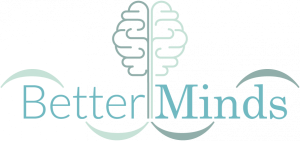Motivational Interviewing
Motivational Interviewing (MI) is the gold standard of change-work tools. It is used as the foundation of excellence in all services including prisons, psychiatric units, and rehabilitation units. MI originated by observing the most effective practitioners and identifying what they do that makes all the difference to their clients. These observed techniques have been distilled into a skill-set that we can all adopt to improve outcomes for those we work with. Because of this, it has become the essential training for substance misuse practitioners, social workers and any social care provider. Since the late 1980s MI has been delivering results that all providers need. Its value is now so recognised that MI is becoming the default minimum staff quality standard for practitioners. Many commissioners now make it a requirement that teams they commission will be trained in this skill-set.
An Introduction to the Betterminds' Motivational Interviewing Course
Motivational Interviewing is a client-centred directive method for enhancing intrinsic motivation to change by exploring and resolving ambivalence. Implementing the MI techniques has a huge impact. MI integrates empathy, open questions, reflective listening to create understanding of the client’s point of view.
Motivational Interviewing is focused, goal-directed, and by using a less direct persuasive approach, it is overall more successful at solving ambivalence. These flexible tools and techniques promote higher rates of sustainable change. MI has the added benefit of reducing the stresses placed on your teams from resistance. This stress reduction promotes great effectiveness, retention and well being in your teams.
The Betterminds Motivational Interviewing course will equip your staff with all the tools and resources to be confident effective practitioners.
How Long is the Motivational Interviewing Course?
The Betterminds Motivational Interviewing Course usually runs for two days.
This training can be delivered back to back. We recommend that with any 2 day training you split it across a week or even longer. This is because your teams will have a better learning and growth experience. They will gain more insight by applying the tools learnt on day 1 prior to day 2. They will have a greater opportunity to process the learning, and better identify their own learning needs by day 2.
Betterminds also delivers a day long refresher course in MI for established and very confident practitioners. We would recommend this course only after the whole team have accessed our 2 day training course previously.
What Will My Team Gain From The Betterminds' Motivational Interviewing Course
- Your team will gain strategies to incorporate and integrate the knowledge gained to support service users.
- They will gain a unified understanding of working with service users.
- Your team will have a manual which offers specific strategies to move service users forwards.
- Your team will also gain skills to help them work more effectively with service users when faced with conflict and resistance.
Where Will The Betterminds' Motivational Interviewing Course Be Useful
This course will be useful in organisations that specialise in helping others to make sustainable changes. MI is vital where self-efficacy and independence are essential, working to support people to promote a life of partial or complete independence.
MI also plays a crucial role for social care professionals and anyone who works with vulnerable adults and young people. Professionals who would benefit from Motivational Interviewing skills include workers in substance misuse, social housing, mental health nurses, general practitioners and education providers.
What Are The Primary Course Objectives
- Explain the principles of MI
- Apply the theory and skills of MI in current practice
- Understand and demonstrate the spirit of MI
- Describe and demonstrate MI strategies
- Put self-efficacy tools and techniques into practice
- Explain and apply techniques to deal with resistance
- Build expectation and motivation in those you support
- Discuss the traps to avoid when using MI
- Feel more confident as a practitioner
- Be able to apply MI to all spheres of your life
What Else Will Our Team Learn
- Reduce conflict in your workspace and build a calmer environment
- Build a culture of independence
- Normalise change by knowing how to nurture growth mindsets
- Be more resilient to service user resistance
- Integrate MI to build a culture of change in your work environment
- Recognise how the effectiveness of MI can benefit clients, service users and your organisation as a whole
